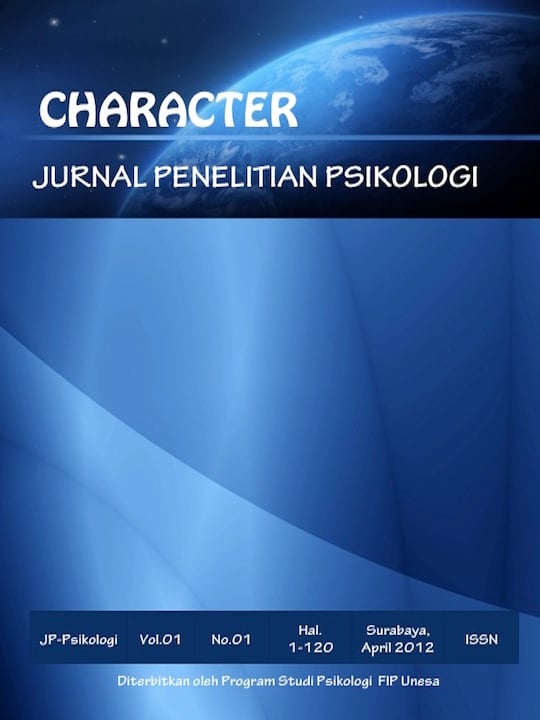PERBEDAAN KETANGGUHAN MENTAL DITINJAU DARI STATUS ATLET INDIVIDU DAN BEREGU PADA SISWA SMA X
DOI:
https://doi.org/10.26740/cjpp.v8i8.41691Abstract
Abstrak
Ketangguhan mental adalah suatu hal yang diperlukan oleh atlet pelajar bukan sekedar untuk pertandingan tetapi juga untuk kehidupan sehari-hari. Hal tersebut dikarenakan atlet pelajar memiliki tanggung jawab untuk latihan dan bertanding sekaligus bertanggung jawab dalam tugas akademiknya di sekolah. Status atlet disini adalah atlet individu dan beregu yang pada dasarnya diguga memiliki tugas gerak berbeda sehingga perbedaan ini akan mempengaruhi ketangguhan mentalnya. Penelitian ini bertujuan untuk mengetahui perbedaan ketangguhan mental pada atlet pelajar ditinjau dari atlet individu dan beregu. Metode yang digunakan pada penelitian ini adalah kuantitatif non-eksperimen. Total subjek sebanyak 80 atlet pelajar yang didapatkan menggunakan teknik non-probability purposive sampling dengan memberikan batasan pada populasi berupa siswa aktif SMA X dan tergabung dalam ekstrakurikuler di SMA X sehingga memberikan 30 atlet individu dan 50 atlet beregu. Instrumen pada penelitian ini menggunakan skala ketangguhan mental yang disusun berdasarkan Gucciardi. Teknik analisis data yang digunakan pada penelitian ini adalah independent sample t-test. Hasil penelitian menunjukkan nilai sebesar 0.537 dengan rata-rata sebesar 96.27 untuk atlet individu dan 94.12 untuk atlet beregu. Makna dari hasil tersebut yaitu adanya perbedaan pada ketangguhan mental antara atlet indvidu dan beregu pada siswa SMA X tetapi tidak secara signifikan. Hasil ini dapat muncul karena adanya kesamaan pada usia perkembangan dengan rentan usia 16 hingga 20 tahun. Selain itu mereka juga memiliki tugas akademik yang sama sehingga mereka masih berbaur satu sama lain.
Kata kunci: ketangguhan mental, atlet pelajar, individu, beregu
Abstract
Mental toughness is something that student athletes need not only for competitions but also for everyday life. This is because student athletes have the responsibility to practice and compete as well as to be responsible for their academic duties at school. The status of athletes here are individual and team athletes who are basically assumed to have different motion tasks so that this difference will affect their mental toughness. This study aims to determine differences in mental toughness in student athletes in terms of individual and team athletes. The method used in this research is non-experimental quantitative. The total subjects obtained were 80 subjects using non-probability purposive sampling technique by limiting the population in the form of active students of SMA X and joining extracurricular activities at SMA X so as to provide 30 individual athletes and 50 team athletes. The instrument in this study used a mental toughness scale based on Gucciardi. The data analysis technique used in this study was the independent sample t-test. The results showed a value of 0.537 with an average of 96.27 for individual athletes and 94.12 for team athletes. The meaning of these results is that there is a difference in mental toughness between individual and team athletes in SMA X students but not significantly. This result may arise because of the similarity in the developmental age with the age range of 16 to 20 years. In addition, they also have the same academic duties so they still mingle with each other.
Keywords: mental toughness, student athlete, individual, team
Downloads
Downloads
Published
How to Cite
Issue
Section
License
Authors who publish in this journal agree to the following terms:
Copyright in any article is held by the author.
The author grants the journal, publication rights with the work simultaneously licensed under a Creative Commons Attribution License that allows others to share the work with an acknowledgment of the work's authorship and initial publication in this journal.
Authors may enter into separate, additional contractual arrangements for the non-exclusive distribution of the journal's published version of the work (e.g., posting it to an institutional repository or publishing it in a book), with an acknowledgment of its initial publication in this journal.
Authors are permitted and encouraged to post their work online (e.g., in an institutional repository or on their website) prior to and during the submission process, as this can lead to productive exchanges, as well as earlier and greater citation of published work.
 Abstract views: 793
,
Abstract views: 793
, PDF Downloads: 847
PDF Downloads: 847





